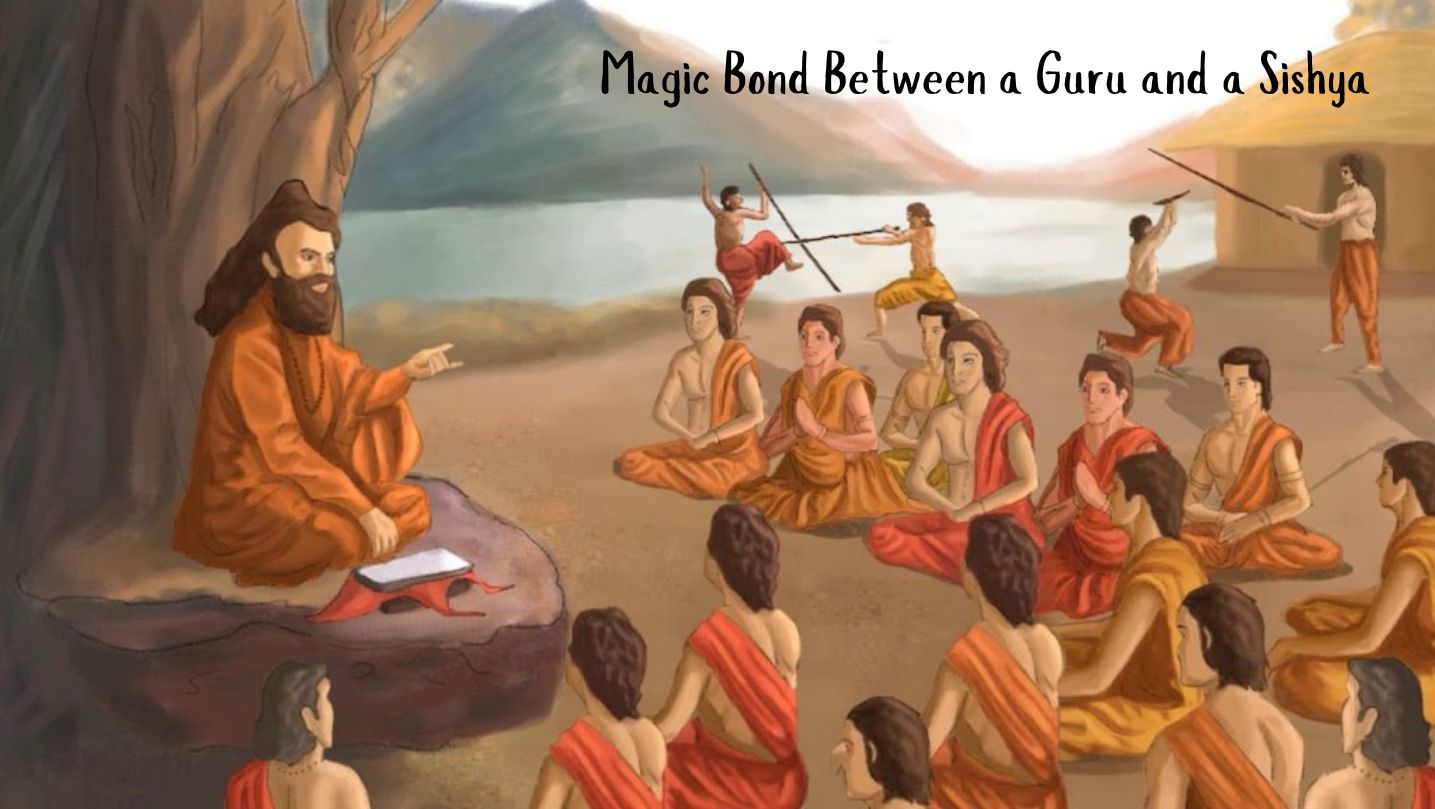
Bharath has always been a land traversed by spiritual masters/ Guru since time immemorial. These spiritual masters have always upheld the core principles of spirituality through their various literary works, meditative techniques and yogic practices. This inexhaustible knowledge of the divine (though given to us in ancient times) remains contemporary that Bharath is the ONLY destination for a true seeker of spirituality and self-realisation. For a genuine seeker, this knowledge of the divine is unfathomable without an expert authority. - a Guru.
IMPORTANCE OF A GURU
Bharath has always been a land that revered its Gurus. There is a well-known adage which goes:
Matha, Pitha, Guru, Deivam.
This ancient phrase sheds light on the importance and order of people supporting individuals throughout their life journey. When a child is born, the mother tends to all their needs with the utmost love and care. When an individual reaches a certain age, the father takes the preparatory role by guiding the child. He guides the child on worldly matters. When the time is ripe, it becomes the sole responsibility of the Guru to enlighten the individual by removing ignorance and imparting knowledge. A blind cannot lead a blind. Hence, a Guru is crucial. Guru opens the door and shows the way to divine experience. God is invisible and can be visible only through a person who has already realised God. Hence, the Guru comes before God.
The Bhagavad Gita : Chapter 4, Verse 34 says:
tad viddhi praṇipātena paripraśhnena sevayā
upadekṣhyanti te jñānaṁ jñāninas tattva-darśhinaḥ
Meaning of the verse :
To attain the absolute truth, one must seek guidance from a spiritual master. Make humble enquiries, serve him and be reverential. Such an enlightened saint can impart knowledge because he has realised the ultimate truth.
Srimad Bhagavatham : Canto 11: Chapter 22: Verse 10 says:
anady-avidya-yuktasya
purusasyatma-vedanam
svato na sambhavad anyas
tattva-jño jñana-do bhavet
Meaning of the verse:
The ignorance from endless lifetimes clouds the intellect of the soul. The intellect, simply by its effort, cannot overcome ignorance. One needs to receive knowledge from a God - realised saint who knows the absolute truth.
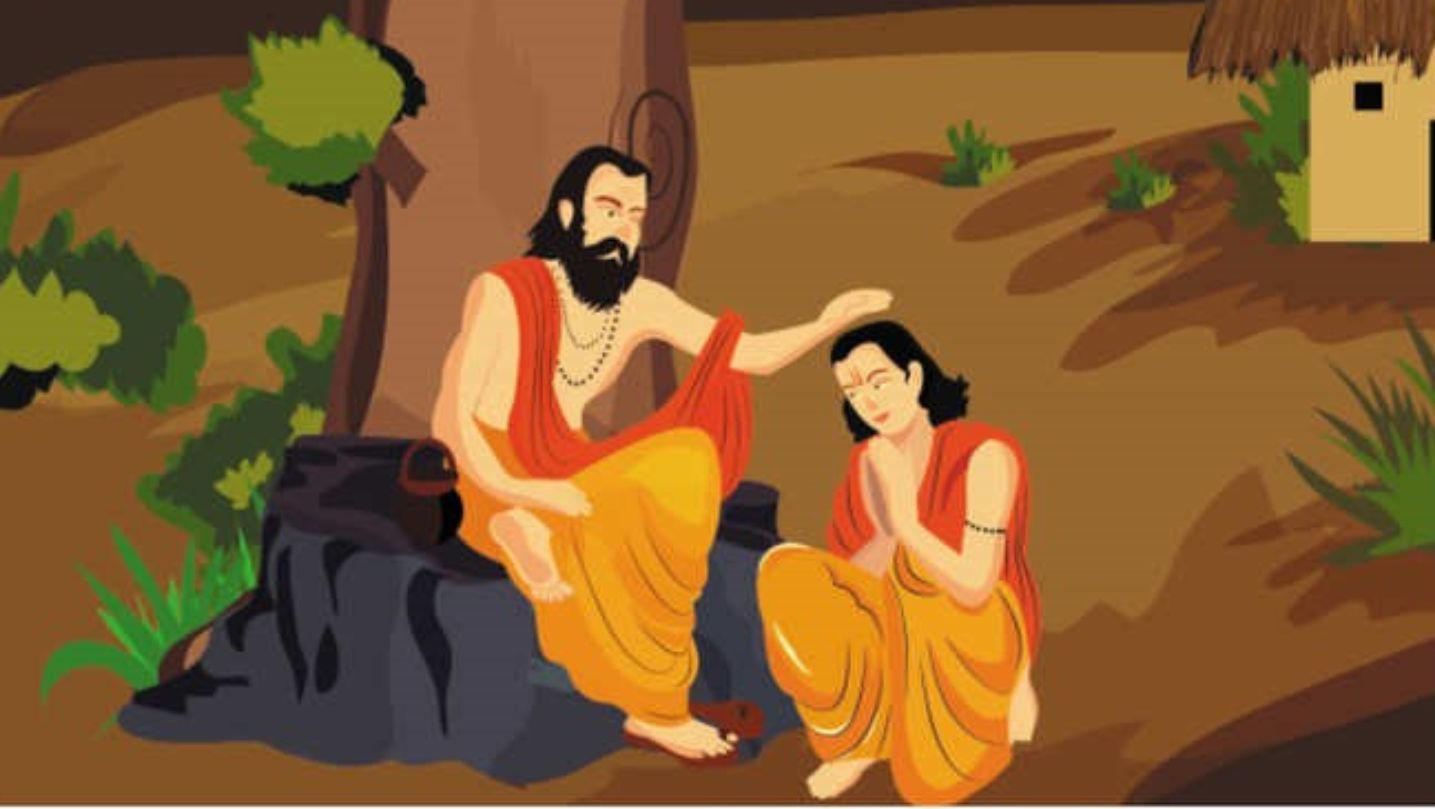
A GURU ALWAYS CHOOSES THE DISCIPLE
“When a disciple is ready, the Guru appears”, goes an ancient saying. Not every individual travels towards understanding God. To have a spiritual yearning is not an ordinary matter. The desire to enquire the truth comes from the blessings of God. Similarly, not every individual is fortunate enough to learn under a Guru. It is the blessings of the divine that guide a Guru to his disciple. But, the disciple always thinks he/she has chosen his Spiritual Master / Guru. But, it is the other way around. A Guru knows when to enter/ initiate his disciple. Guru understands and plays his role perfectly. Once a Guru enters, the life of a disciple changes forever.
GURU - SHISHYA PARAMPARA
Bharath has always been the only place where this tradition was in existence. The Guru-Shishya Parampara has always played a vital role in our Bharathiya culture and civilisation by transmission of knowledge and culture. The word Guru refers to a teacher/guide or a spiritual master. Sishya refers to a student. Parampara means an uninterrupted tradition or a lineage (which helped transmit knowledge and culture).
It was customary in the ancient days that the students who seek knowledge reside at the home of a Guru - A Gurukul. Children join a Gurukul and stay there for up to 15 years or more till they finish their education. Apart from Vedas and religious texts, students also learnt science, maths, linguistics, warfare, metallurgy, agriculture, critical thinking and more. All the teaching was only through oral transmissions. Thus, the disciples were fully engaged and present during the discourse. There was always a personal touch. The Guru personalised the teachings to suit the capacity of his Sishya. Invariably, A Guru transmits the exact quantity of information that his student can receive and comprehend. A Guru not only guides his disciples on worldly subjects but brings about a change in the spiritual side of the disciples.
Guru - Sishya Parampara thrived on the unshakable trust, bond and relationship between a Guru and his student. One can understand the deep reverence and unbreakable bond between the student and the Guru by reading the scriptures and sacred texts.
CELEBRATING THE GURU
In Bharat, a special day is dedicated to respect and celebrate the Guru. This day is called Guru Poornima. This day falls on the first full moon of the Ashadha ( June - July) month. Guru Poornima is the birthday of the great sage Ved Vyasa.
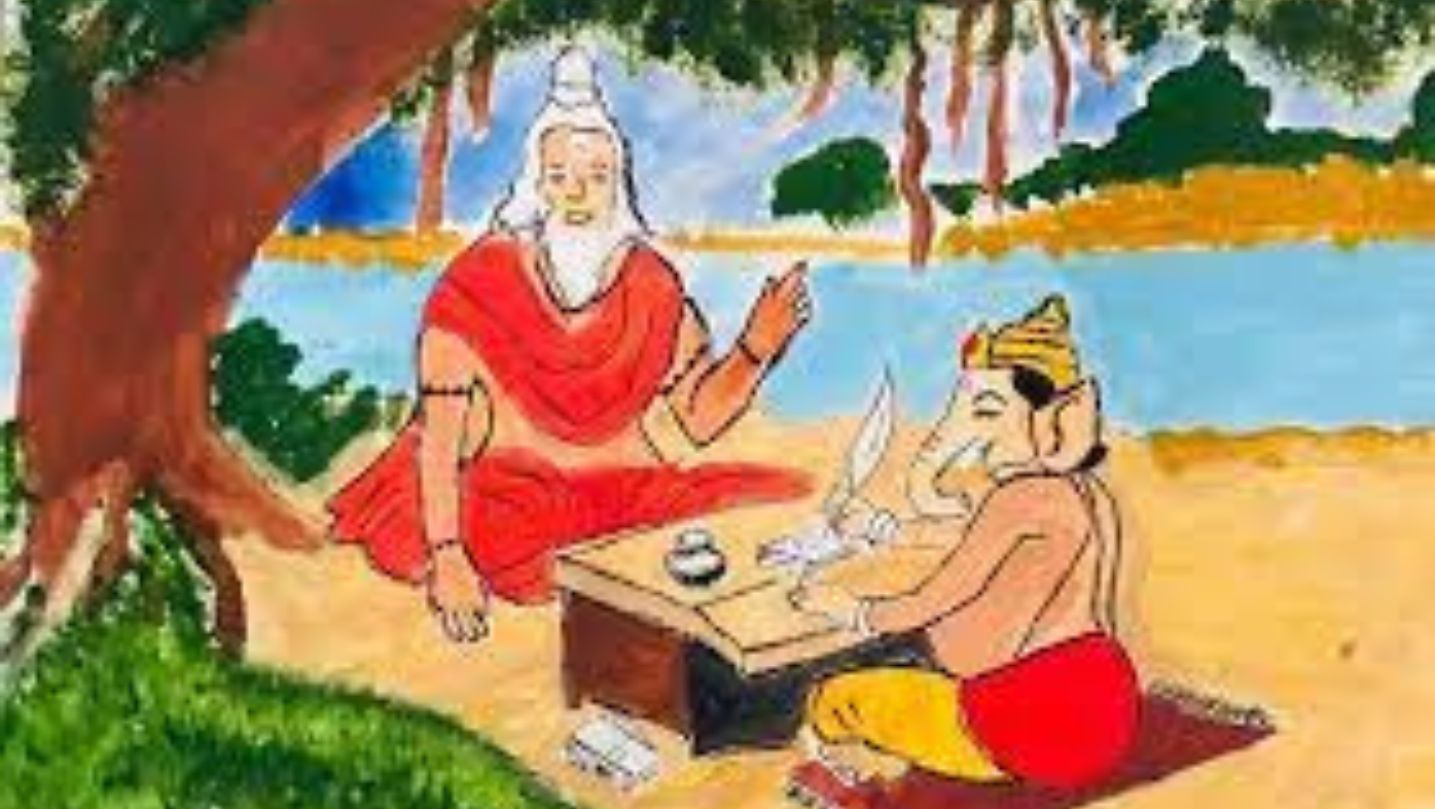
God revealed the sacred truth to the ancient sages who sat in deep meditation. The sages (at different time periods) then composed it into hymns and verses and passed it on as oral traditions to their Sishyas. The disciples used to orally chant the information presented to them and pass it to the next generation as oral tradition. Although all the saints and sages are respected, Sage Ved Vyasa is deeply revered because he was the one who gathered and compiled all the Vedas and divided them into the four Vedas ( Rig, Yajur, Sama & Atharvana) based on their characters.
On Guru Poornima day, disciples observe fasts and offer their salutations to their Guru. They chant/ read the famous Guru Gita authored by Sage Ved Vyasa. Guru Gita is a text that describes a conversation between Lord Shiva and Goddess Parvathi. Lord Shiva bows down to the Guru principle and explains to Goddess Parvathi the essence of a Guru.
People also chant the Guru Paduka Stotram on Guru Poornima day. These chants are powerful and glorify the sandals of the Guru. This Stotram helps a disciple to receive the grace of his Guru.
Guru Vandanam/ the Guru Stotram is another well-known Stotram honouring the Guru. The great saint Adi Sankaracharya gave this chant/hymn. It praises the qualities of a Spiritual Guru and highlights the importance of surrendering to him. All these chants are a beautiful expression of gratitude and reverence towards a Guru.
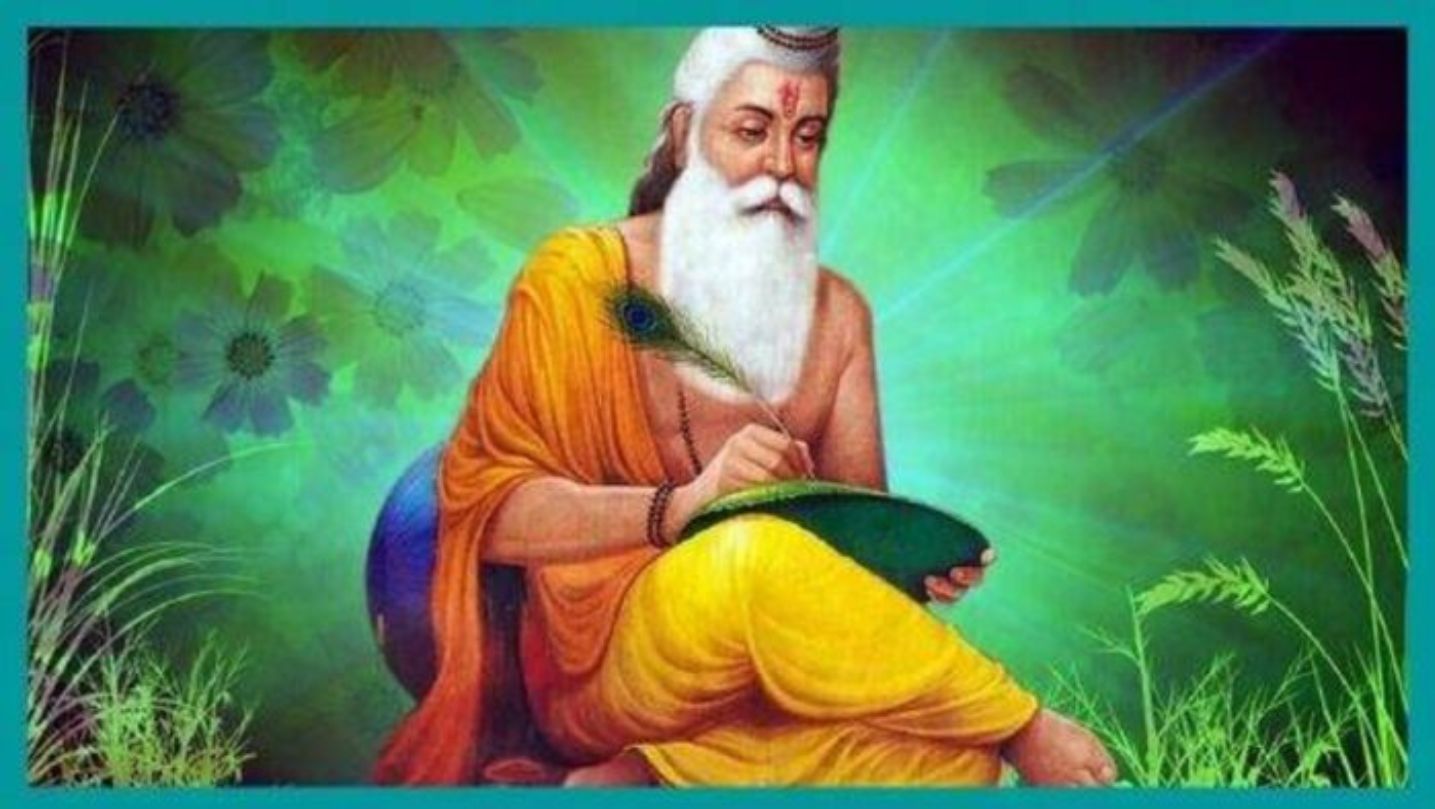
Skanda Purana says :
Gurur Brahma, Gurur Vishnu,
Gurur Devo Maheshwara,
Gurussakshat Parabrahma,
Tasmaya Shri Guruve Namaha.
Meaning of the verse :
Guru is Vishnu, Brahma and Shiva. Guru is indeed the Brahman, which is the form of God. I bow down and revere that mighty Guru.
Hence, A Guru is God and blessed is a Sishya!
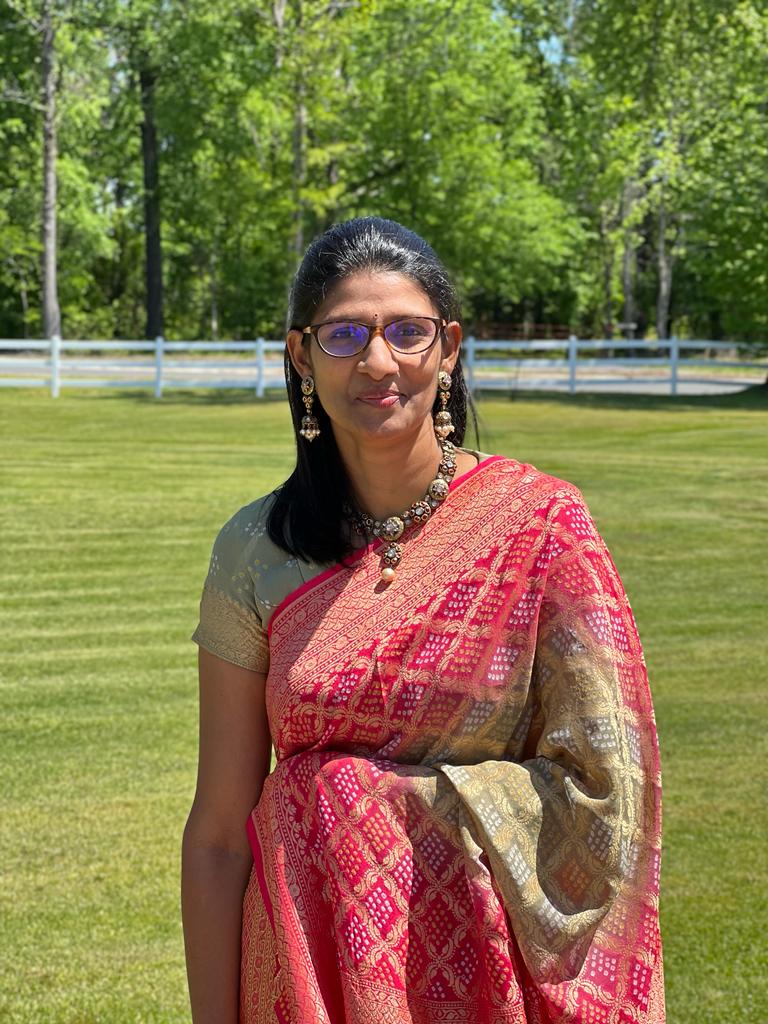 Vaishnavi Gurusankar is a passionate educator, a wife, and a mother. She has over a decade of experience as an educator and has been closely working with teachers and children of all ages. She is also an active parenting blogger and founder of Magical Unicorn, an exclusive parenting blog founded on the Indian ethos, values, and stories at its core. She has also authored the book "Bharatyam : Science behind Hindu Practices & Way of Life"
Vaishnavi Gurusankar is a passionate educator, a wife, and a mother. She has over a decade of experience as an educator and has been closely working with teachers and children of all ages. She is also an active parenting blogger and founder of Magical Unicorn, an exclusive parenting blog founded on the Indian ethos, values, and stories at its core. She has also authored the book "Bharatyam : Science behind Hindu Practices & Way of Life"
PREVIOUS ARTICLE
NEXT ARTICLE

At the southernmost tip of this mesmerising ensemble lies the majestic Great Nicobar Island, boasting an impressive landmass of about 910 square kilom...
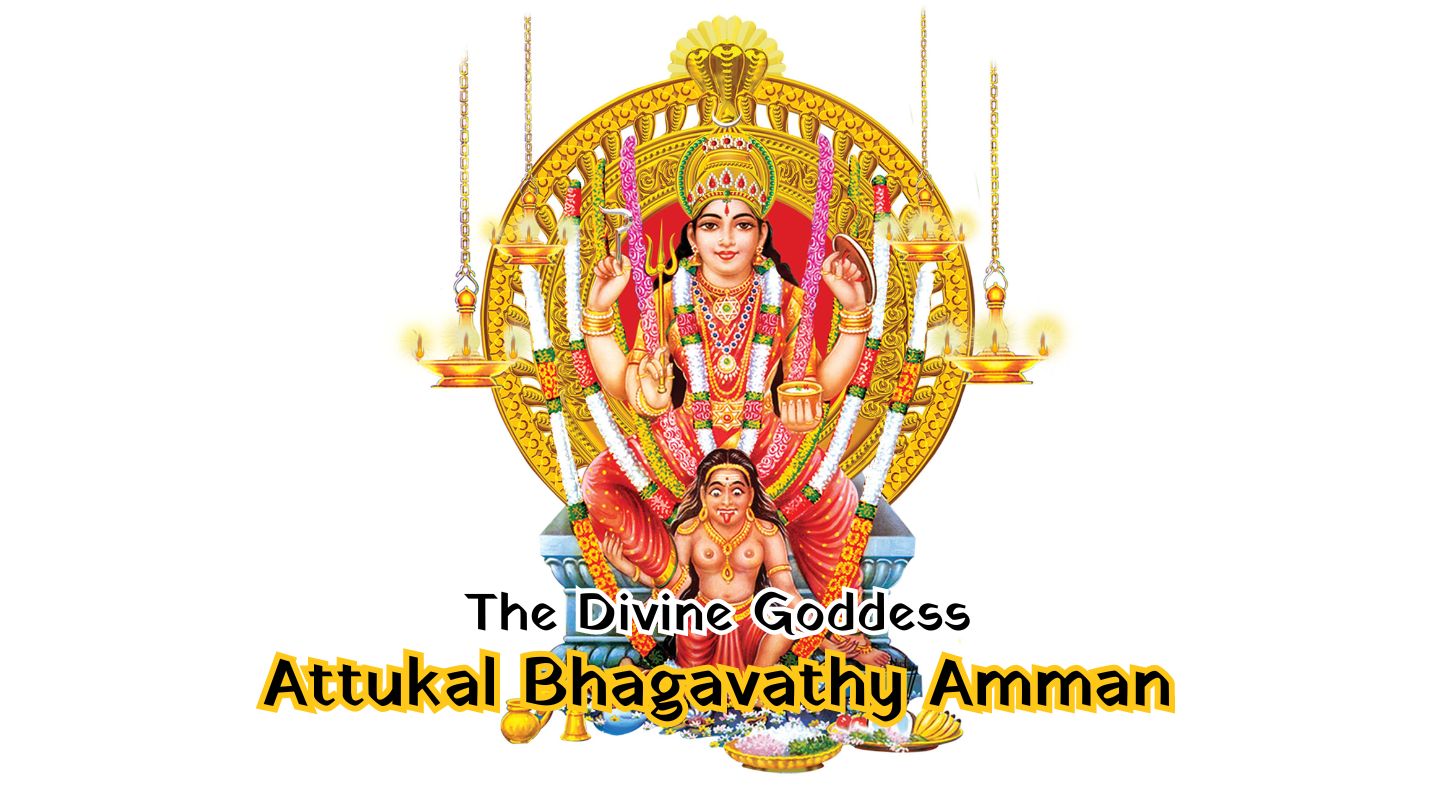
South India contains its fair share of unique pilgrimage centres. These divine places of worship have a prominent Sthala Purana, devoted followers, di...
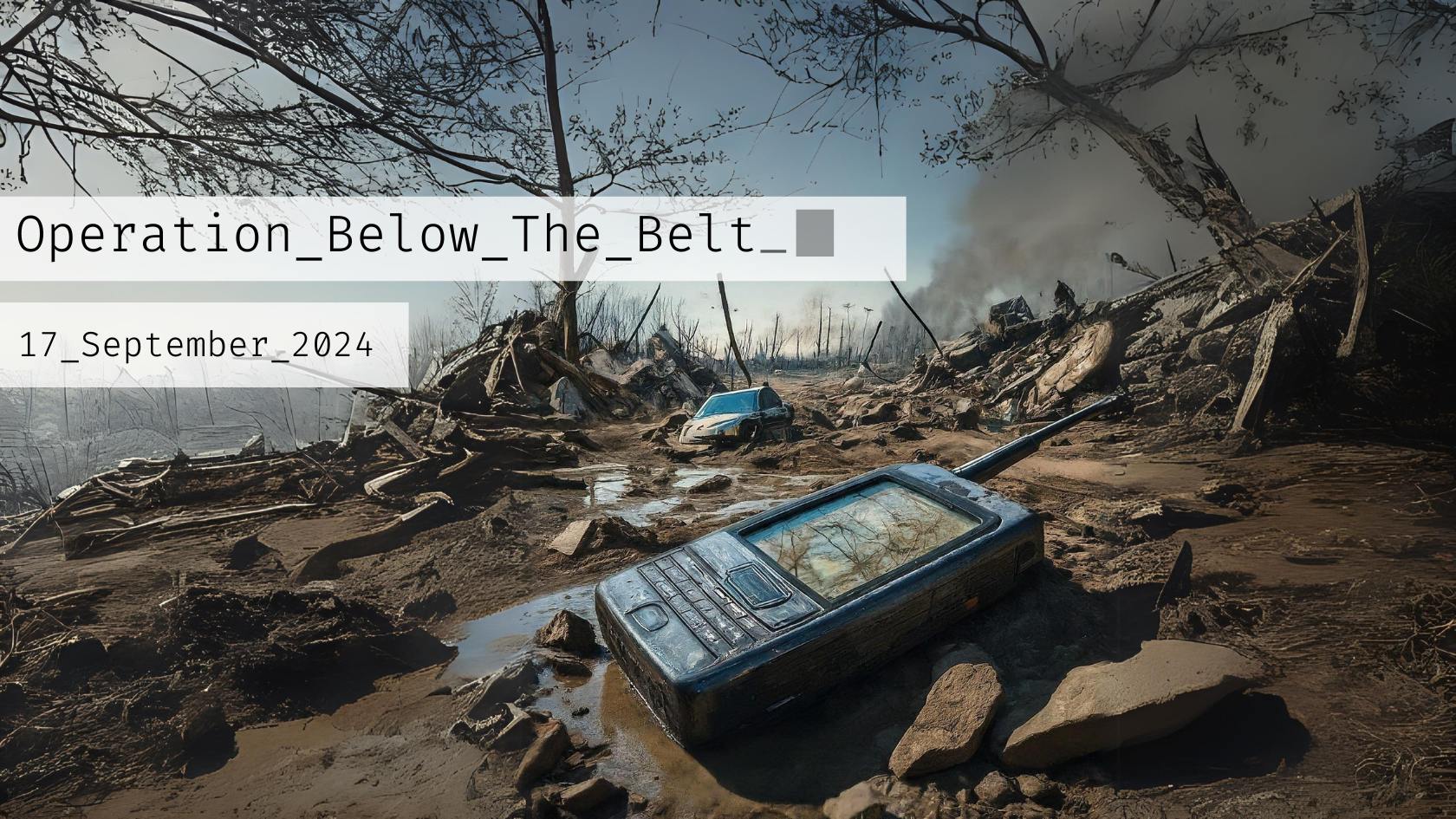
17 September 2024 It was an ordinary Tuesday morning across Lebanon, a day like any other. Hezbollah’s operatives moved through their routines, check...